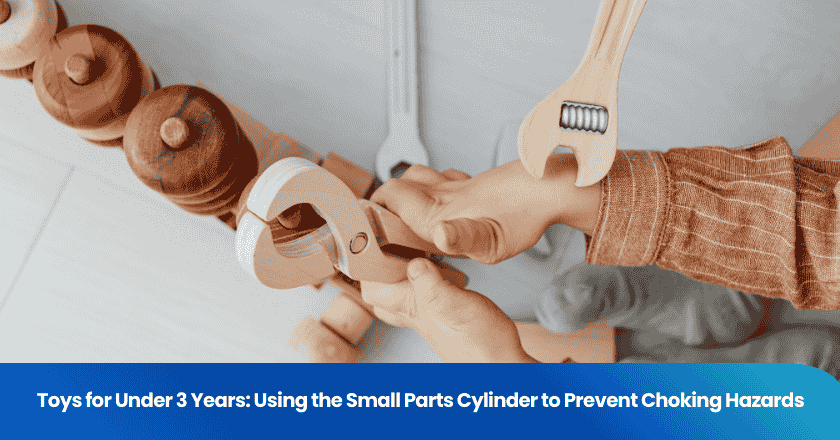
Introduction
In today's highly competitive global manufacturing environment, quality is not only the foundation for product survival, but also the key to the continuous development of enterprises and winning the market. From sophisticated electronic equipment to daily consumer goods, the quality of every product is directly related to consumer satisfaction, the brand image of the enterprise, and even its market position. Quality assurance companies, as professional third parties, play an irreplaceable role in ensuring product quality, improving production efficiency, meeting regulatory requirements, and cost control through their professional knowledge system, rigorous testing processes, and forward-looking quality management strategies.
Ensure product quality and safety
The far-reaching impact of defective products
The consequences of product defects are extremely serious, and the cost of recalls is just the tip of the iceberg. In addition to bearing direct logistics costs, product repair or replacement expenses, companies also need to face a series of indirect losses such as decreased production efficiency due to work stoppages and increased storage costs caused by inventory backlog. The accumulation of these expenses often amounts to staggering amounts, putting great pressure on the financial situation of the company and even threatening its survival and development. What is more serious is that product defects can also cause immeasurable damage to the company's brand reputation. A single quality incident is enough to make consumers question and distrust the company, and once this distrust is formed, it is difficult to eliminate. Over time, the company's brand reputation will be severely hit, market share will drop significantly, and it may even fall into a brand crisis, facing the risk of being eliminated by the market.
The key role of quality assurance companies in preventing defective products
To prevent the occurrence of the aforementioned tragedies, quality assurance as a preventive measure is particularly important. Quality assurance companies, by utilizing advanced quality inspection technologies and comprehensive analysis methods, are able to accurately identify potential quality issues in the early stages of product production. In this way, enterprises can take timely measures to rectify and avoid problematic products entering the market, thus protecting the rights and interests of consumers and maintaining the brand image of the enterprise.
More importantly, the quality assurance teams, upon identifying issues, will respond promptly and devise practical corrective measures. These measures may include optimizing production processes, strengthening employee training, enhancing equipment performance, and other aspects, aiming to fundamentally solve the problem and ensure that similar issues do not recur. Through such continuous quality improvement and risk control, enterprises can effectively reduce quality risks and enhance the overall quality level of products, thereby standing out in the fierce market competition and gaining the trust and support of consumers.
Improve manufacturing efficiency
Deeply optimize production processes to increase efficiency
Optimizing the production process is a crucial aspect of enhancing manufacturing efficiency. Quality assurance companies, with their deep understanding and practice of lean production concepts, can delve into the production sites of manufacturers. Through meticulous observation and professional analysis, they precisely identify various wasteful links in the production process. These wastes may stem from unnecessary processes, excessive inventory, unreasonable material handling, etc. Quality assurance companies not only pinpoint the problems but also provide practical solutions to help manufacturers eliminate these wastes, thereby significantly reducing rework caused by quality issues and making the production process smoother and more efficient.
In addition, quality assurance companies are also adept at utilizing advanced data analysis tools to conduct in-depth mining and analysis of the vast amounts of data in the production process. Through these data, quality assurance companies can identify deficiencies and bottlenecks in resource utilization and propose targeted resource optimization and allocation suggestions. Whether it is the timing and quantity of material procurement, the reasonable scheduling and utilization of equipment, or the allocation and training of human resources, quality assurance companies can provide scientific and reasonable suggestions, helping manufacturers achieve maximum utilization of production resources, further enhance production efficiency, and effectively control costs.
Implement continuous improvement plans to strengthen the foundation
To ensure the continuous improvement of manufacturing efficiency, implementing a comprehensive quality management system is crucial. Quality assurance companies usually recommend and assist manufacturers in introducing internationally recognized quality management systems such as ISO 9001. These systems provide manufacturers with a systematic and standardized quality management framework that covers the entire process from product design, raw material procurement, manufacturing to after-sales service. By following the requirements of these systems, manufacturers can establish a self-improving and continuously improving mechanism to ensure the stability and improvement of product quality.
At the same time, quality assurance companies also deeply understand the importance of cultivating a quality culture for enhancing manufacturing efficiency. They are committed to helping enterprises establish a top-down quality awareness, so that every employee deeply recognizes the importance of quality for the survival and development of the enterprise. By organizing various quality trainings, quality month activities, quality awards, and other measures, quality assurance companies encourage employees to actively participate in quality management, actively propose improvement suggestions, and form a good atmosphere where everyone pays attention to quality and pursues excellence. The formation of this quality culture not only provides manufacturers with a continuous source of motivation for quality improvement but also lays a solid foundation for their long-term development.
Meet regulatory and customer requirements
Strictly follow industry standards to ensure global compliance of products
In today's increasingly frequent global trade, products not only need to meet the regulatory requirements of the domestic market, but also need to cross international boundaries and comply with the legal and regulatory standards of different countries and regions. Quality assurance companies, with their profound industry experience and professional knowledge, closely track global regulatory developments, helping manufacturers fully understand and comply with these complex and ever-changing regulatory requirements. From product design to production processes, and finally to product testing and verification, quality assurance companies strictly control the quality, ensuring that products can be sold globally in compliance, effectively avoiding technical barriers in international trade, and clearing the way for manufacturers to expand into international markets.
At the same time, obtaining internationally recognized certifications is crucial for products to enter specific markets. Whether it's the CE certification in Europe, the UL certification in the United States, or specific certifications in other countries and regions, quality assurance companies possess extensive certification experience and resources, and can assist manufacturers in efficiently completing the certification process. These certifications are not only authoritative endorsements of product quality, but also the "golden key" for manufacturers to enter the target market, significantly enhancing the market competitiveness and international influence of the products.
Gain deep insight into customer needs to enhance satisfaction and loyalty
In the context of increasingly fierce market competition, accurately understanding and meeting the genuine needs of consumers has become the key for manufacturers to stand out. Quality assurance companies, through in-depth market research and meticulous analysis of customer feedback, help manufacturers gain insights into market trends and grasp consumer preferences, thereby designing products that better meet market expectations. From product functionality, exterior design to user experience, quality assurance companies strive for excellence, ensuring that products can directly address consumer pain points and meet or even exceed their expectations.
In addition, continuously providing high-quality products and services is the foundation for establishing and consolidating customer trust. Quality assurance companies assist manufacturers in establishing strict quality control systems to ensure that every product meets high-standard quality requirements. At the same time, through excellent after-sales service and timely customer response, manufacturers can further enhance customer trust and increase customer loyalty. This customer trust based on quality and service not only brings stable revenue sources to manufacturers but also helps them remain invincible in the fierce market competition and achieve sustainable development.
Cost savings and gaining competitive advantage
Reduce long-term costs comprehensively and safeguard corporate assets
In a fiercely competitive market environment, enterprises must not only pursue short-term benefits but also focus on long-term cost control. By effectively preventing quality incidents, enterprises can avoid legal actions and heavy fines caused by violations of laws and regulations, protecting their valuable assets from harm. Quality assurance companies, as capable assistants to enterprises, establish a comprehensive quality management system, strictly controlling every aspect of the production process to ensure that products comply with relevant laws, regulations, and industry standards from design to delivery. In this way, enterprises can operate legally and avoid unnecessary legal risks and economic losses.
At the same time, high-quality products can significantly reduce customer returns and complaints. When consumers purchase satisfactory products, they naturally trust the company more, reducing the frequency of returns and complaints. This not only reduces the cost of handling these matters for the company but also maintains good customer relationships, laying a solid foundation for the company's sustainable development. Quality assurance companies help companies continuously improve product quality through continuous quality monitoring and improvement, thereby achieving cost control while also enhancing customer satisfaction and loyalty.
With quality as the core, gain sustainable competitive advantage
In a market where homogenization is increasingly serious, how can companies stand out and become the focus of consumers' attention? Excellent quality is undoubtedly the key. Quality assurance companies help companies differentiate themselves through quality, by using refined production processes and strict quality control to create high-quality products that far exceed their peers. These products meet consumers' pursuit of a high-quality life and also become a unique brand identity for the company, attracting more consumers who pursue high quality.
Long-term quality assurance not only enhances the brand image of a company, but also increases its visibility and influence within the industry. When consumers mention a certain type of product, if they can immediately think of the company's brand, then the company has successfully occupied an important position in the minds of consumers. This brand effect not only brings a stable customer base and market share to the company, but also lays a solid foundation for expanding market share and entering new markets. Quality assurance companies help companies continuously consolidate and expand their competitive advantages through continuous quality improvement and innovation, achieving sustainable development and long-term profitability.
END
Quality assurance companies in the manufacturing industry provide solid support for the sustainable development of manufacturing enterprises by ensuring product quality and safety, improving manufacturing efficiency, meeting regulatory and customer requirements, as well as saving costs and gaining competitive advantages.
Facing increasingly fierce market competition and constantly changing consumer demands, continuously investing in quality assurance practices and constantly optimizing the quality management system are the only way for manufacturing companies to maintain competitiveness and achieve long-term success.
Grow your business with TradeAider Service
Click the button below to directly enter the TradeAider Service System. The simple steps from booking and payment to receiving reports are easy to operate.



